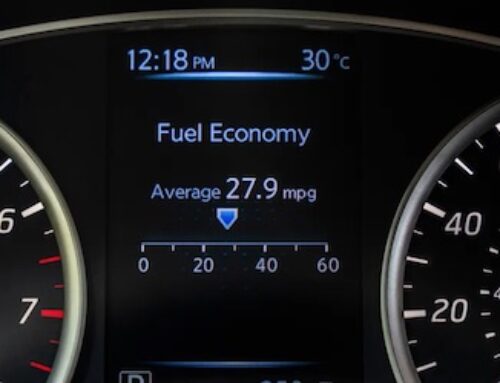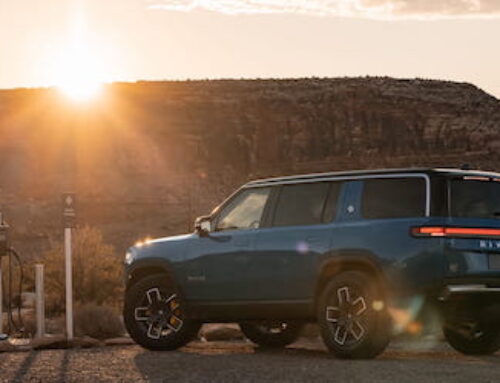Table of Contents
If you don’t already have an electric vehicle (EV), you probably know someone who does. In the past few years, EVs are everywhere, and one of the reasons people choose them, aside from being a cleaner option, is the reduced costs associated with running one. As you make the switch from a gas-powered car to an electric one, you’re almost certainly wondering, “How much does it cost to charge an electric car?” We break down the figures for you so you can understand how to keep your costs low.
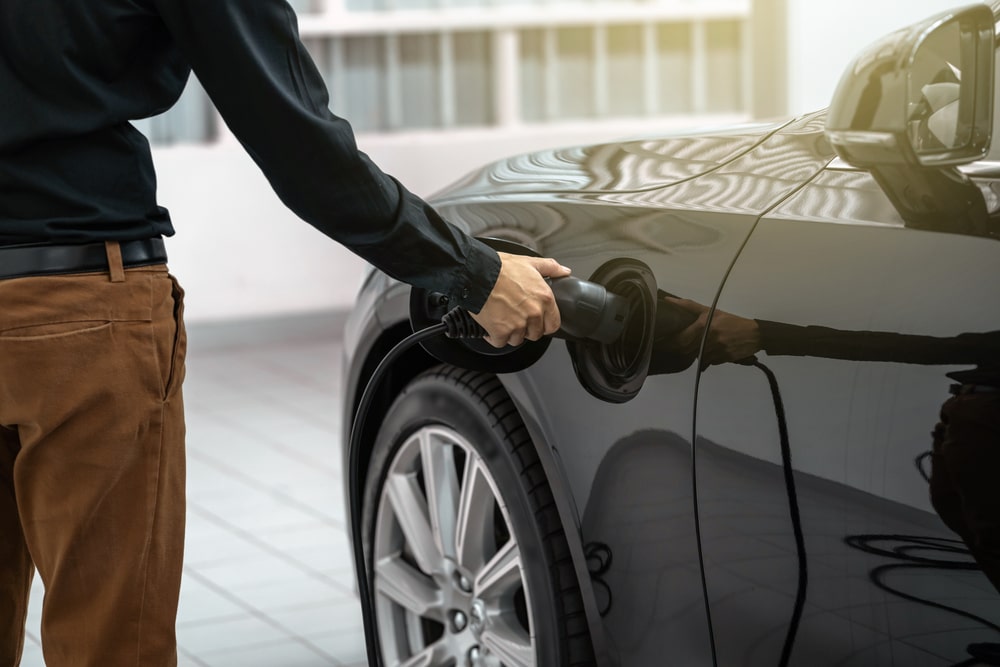
EV charging costs—the basics
First of all, you’ll be glad to hear that in almost all cases, you’ll spend considerably less filling up your electric car than you would a gasoline-powered car. While the figures vary, you can expect to spend between $0.03 and $0.20 per mile to fuel an electric car, while a gas car is likely to cost around $0.10 to $0.30 per mile to fuel. But many factors come into play when working out these costs. They can include:
- Electricity rates by state
- Type of charger
- Home or public charging
- Vehicle efficiency
So, let’s look at these factors in more detail.
5 factors influencing charging costs
1. Electricity rates
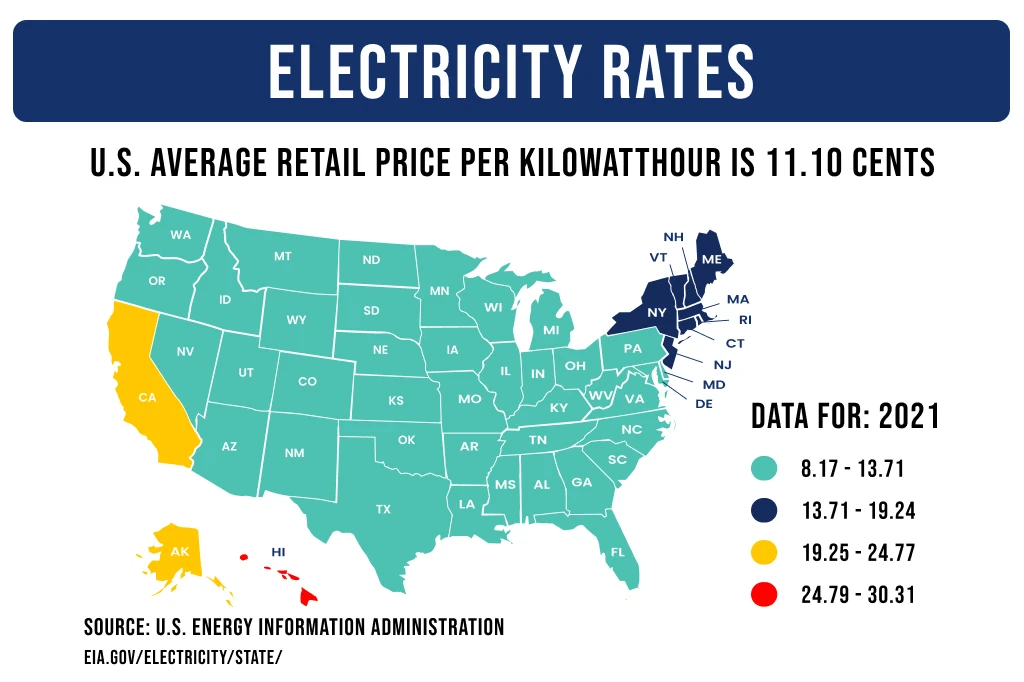
One of the biggest factors influencing EV charging costs is the price of electricity per kilowatt-hour (kWh), which averages out to $0.17 per kWh but can be as low as $0.10 and as high as $0.47 per kWh for residential electricity. For example, in Denver, residential electricity is $0.15 per kWh, so to fully charge a 54-kWh battery it would cost you a very affordable $8.10. On the other end of the scale, in San Francisco, residential electricity is $0.35 per kWh, so to charge a 54-kWh battery, it would cost you $18.90, over twice as much as in Denver.
2. Type of charger
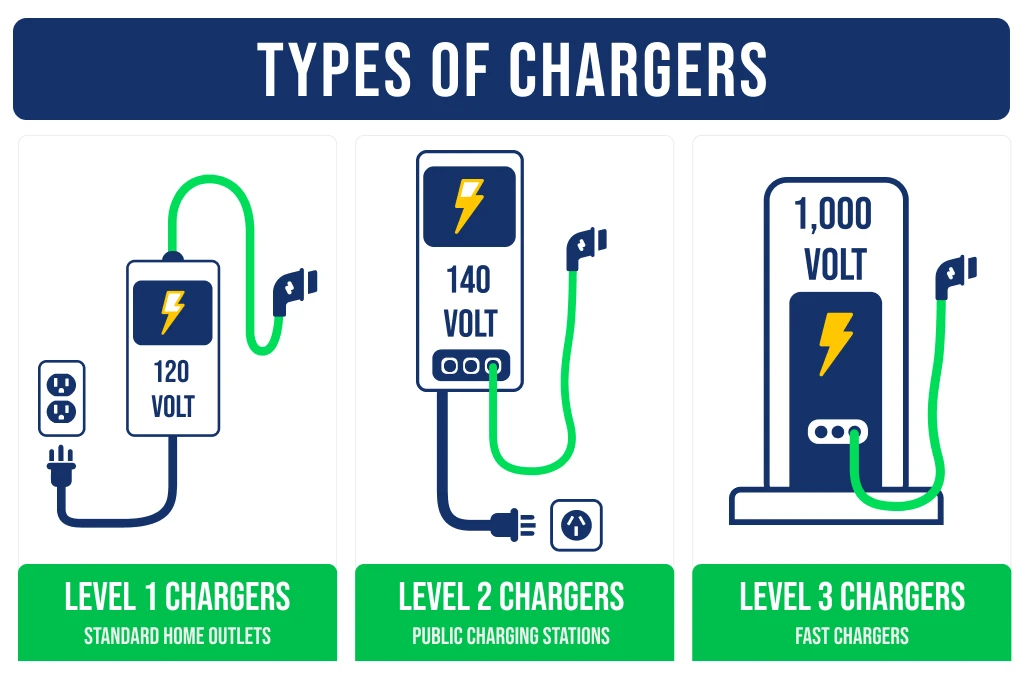
When it comes to charging stations, there are various options, from your at-home charging to a fast charging station. Different types of charging equipment have different charging costs and speeds. Electric vehicles come with a variety of charging options. The most common types include:
- Level 1 Chargers: These 120-volt AC chargers are your standard home outlets, but you’ll also find them out and about in public. They’re generally the cheapest but can take many hours to charge your EV, so they’re good for overnight charging at home or a top-up if you’re somewhere for a few hours. At home, they are likely to cost an average of $0.17 per kWh, although some states will be much cheaper and others more expensive.
- Level 2 Chargers: These 210-240 volt AC chargers are commonly found in public charging stations and can be installed at home. It takes about 3-8 hours to charge your EV at one of these, from 20% to full, and they can cost up to $0.25 per kWh, although some places may have free charging with level 2 chargers.
- DC Fast Charging: DC fast chargers might be up to 1,000 volts and can potentially charge your car in under an hour. They’re the quickest option and ideal for long trips but can cost up to $0.60 per kWh.
The speed of charging can influence the cost. Faster charging often comes at a premium, especially at public stations.
3. Vehicle energy efficiency

Another factor you need to take into consideration is the energy efficiency of your vehicle. This is calculated based on the kWh used per 100 miles. The average is around 34.6 kWh for 100 miles but can vary quite a lot (remember, lower is better here). Older electric vehicles generally are less efficient and can be as high as 54 kWh per 100 miles. Some newer models, like the Hyundai Ioniq, boast energy efficiencies of 24 kWh per 100 miles. So, as you can see, the energy efficiency of a vehicle plays a significant role in determining the cost per mile. The higher the efficiency, the lower the cost per mile. For instance, if electricity costs 18 cents per kWh and an electric vehicle has an energy efficiency of 35 kWh per 100 miles, the fuel cost for the vehicle would be approximately $6.30 for 100 miles or $0.063 per mile.
4. Charging location
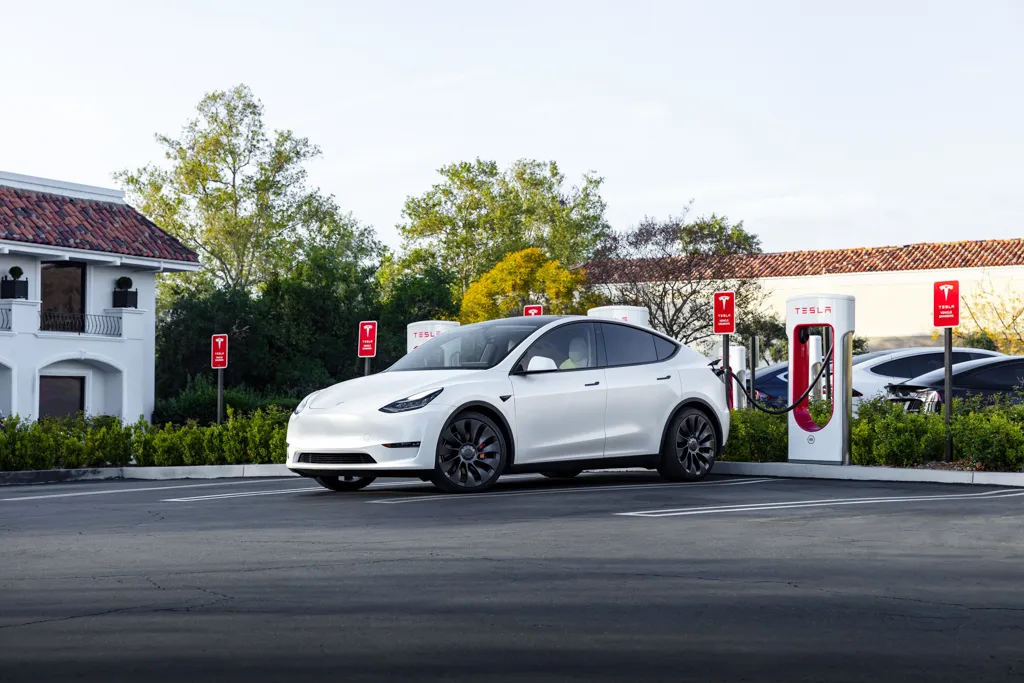
Another location factor that comes into play is whether you’re charging at a public station or at home. Charging at home is usually cheaper than public stations unless you find somewhere with free charging. Public charging stations, especially fast chargers, can cost a premium, and it can be complicated to work out the cost, especially as some stations charge by the minute or hour rather than the kWh. However, many new EVs come with some free public charging perks at specific charging station networks, and you can also subscribe to a charging network to get better rates.
5. Electric vehicle batteries
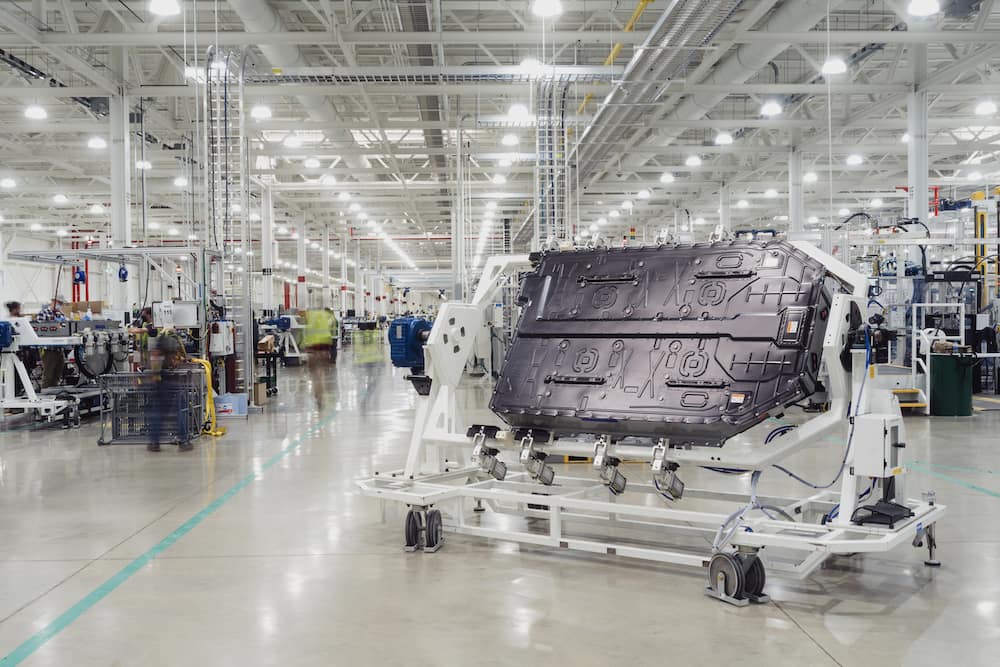
The type of battery in your EV can also influence charging costs, especially if you want to charge it to full at an expensive public charging station. Batteries come in various sizes, measured in kilowatt-hours (kWh), and can range from 54 kWh to over 200 kWh. So choosing somewhere with lower electricity rates will make more of an impact if you’re charging an EV with a very large battery, all the way to full.
Charging electric vehicles—cost breakdown
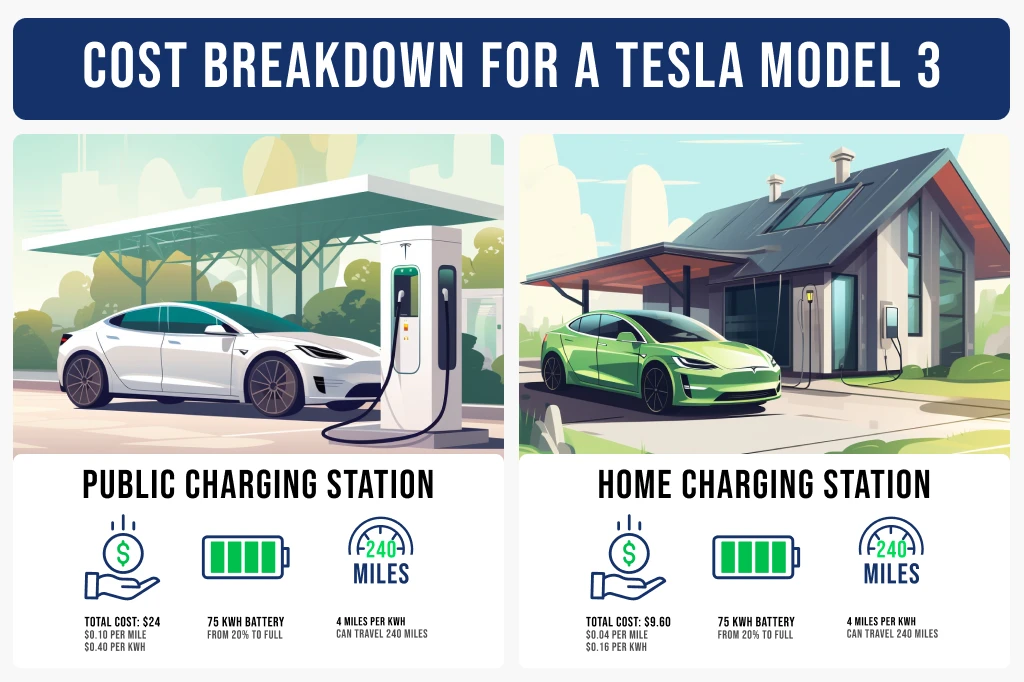
So, to work out the cost of charging your EV, here are the numbers you need:
- Cost of electricity—either residential rates or the rates set by a public charging station
- Size of battery—If you want to fill your battery, you need to know this
For a Tesla Model 3 with a 75 kWh battery, charging at a public DC fast charging station that charges $0.40 per kWh to go from 20% to full (60 kWh) will cost you $24. This car can travel up to about 4 miles per kWh, so it can travel 240 miles on this charge, so it works out at around $0.10 per mile. In contrast, if you charge this same Tesla at home, where electricity is only $.016 per kWh, the estimated cost to charge would only be $9.60 from 20% to full, or $0.04 per mile.
Comparison with gasoline vehicles
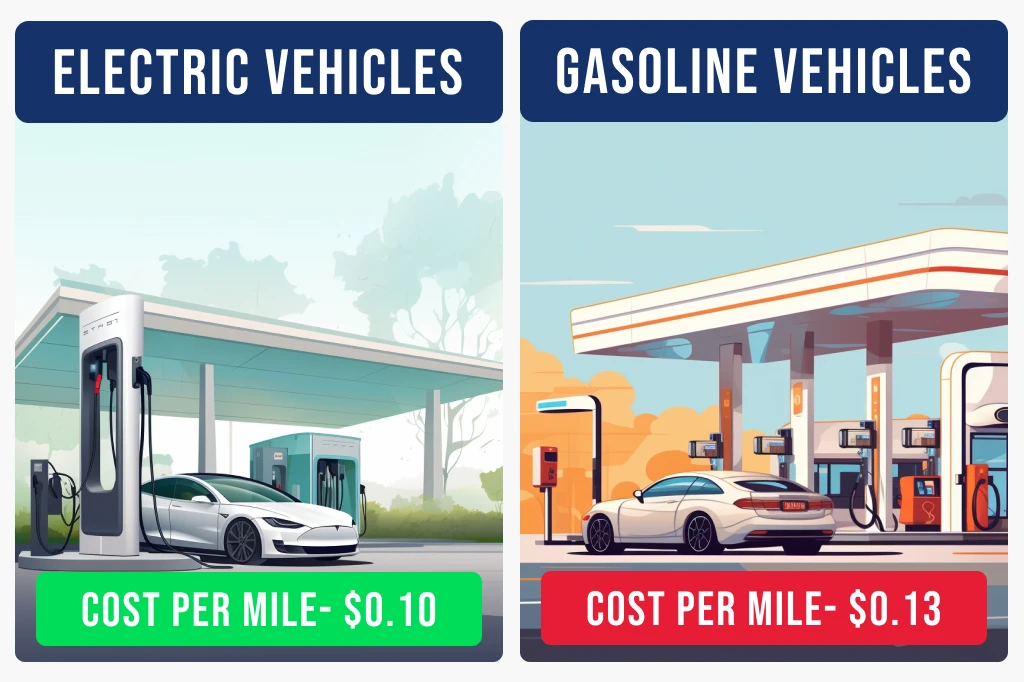
As you can see, there are many factors that need to be taken into account when comparing EVs and gas vehicles. And gas vehicles have vastly different fuel economy, ranging from the measly 15 mpg to the efficient 32 mpg. So, a fairly efficient gasoline vehicle that gets 30 miles per gallon at a fuel cost of $3.90 per gallon (the average cost of gas in the US) at the gas station would have an energy cost of $0.13 per mile. This is still more expensive than charging the Tesla Model 3 at a public station, where it costs $0.10 per mile. Hybrid electric vehicles (HEVs), which combine gasoline engines with electric motors, offer another point of comparison. An HEV with an energy efficiency of 50 mpg would have an energy cost of $0.08 per mile, assuming gasoline costs $3.90 per gallon.
How to reduce costs when charging electric cars
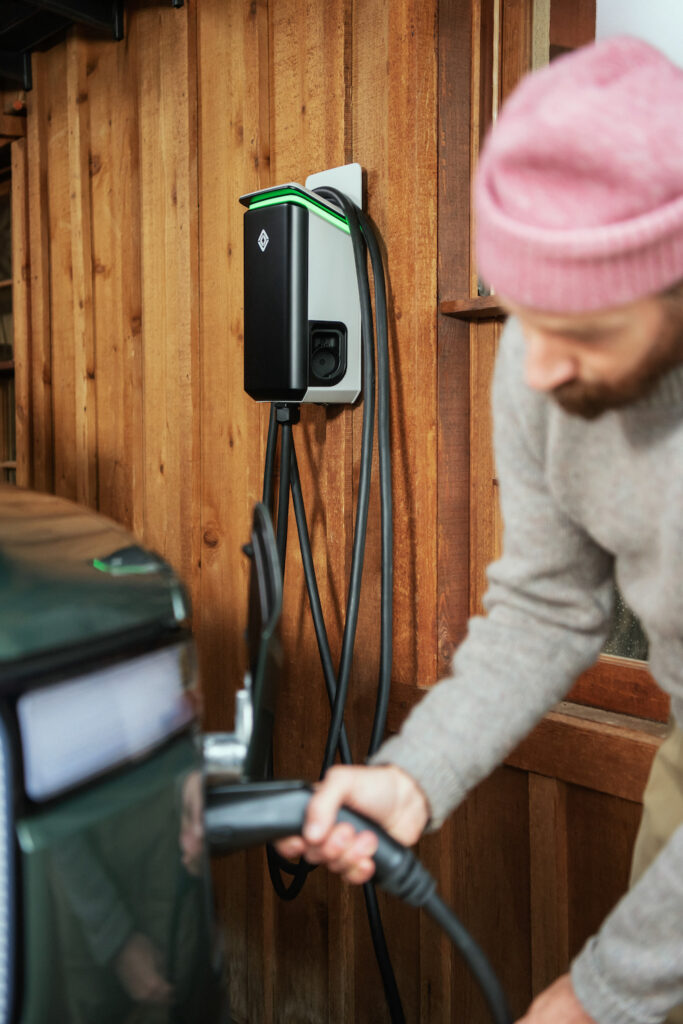
So even though, in general, it’s cheaper to charge your EV than to fill up a gas vehicle, there’s still a lot of room for saving money on charging costs:
- Renewable energy: Consider installing solar panels at home. While there’s an upfront cost, it can lead to significant savings in the long run, especially if you can charge your car’s battery during the daytime when it’s sunny.
- Plan carefully: Ideally, charge your EV at home overnight, but if you’re going on a long-range road trip, plan your stops carefully to minimize charging costs on the road. There are various apps that can help you do this, like PlugShare or A Better Route Planner.
- Government incentives: You may be able to find rebates or tax credits for EV owners depending on where you live.
- Smart charging: Use onboard scheduling to charge during off-peak hours when electricity is cheaper.
EVs aren’t just a sustainable choice for the environment; they can also help you save money in the long run. By understanding the factors that influence charging costs and making smart decisions, you can enjoy the benefits of EV ownership and save.
Frequently Asked Questions
How much does it actually cost to charge an electric car?
Charging an electric car to full generally costs from less than $10 to up to $30, depending on several factors. The main factors to consider are electricity rates and the car’s battery size. Electricity can be as cheap as $0.15 per kWh but can go up to over $0.40 per kWh. And EV batteries can range in size from around 50 kWh to 200 kWh. So the cost will vary a lot based on these two factors. The US Department of Energy has a great free calculator to work out EV costs.
How much does it cost to charge and electric car at a charging station in the US?
Charging your EV at a public charging station in the U.S. can vary in cost from around $0.20 to $0.40 per kWh. Some stations offer flat-rate fees, while others might charge by the minute, especially for fast chargers. You might also find free charging stations at shopping malls or universities. It’s also worth noting that some charging networks offer membership plans that will give you lower rates. For an EV with a 60 kWh battery, a full charge could cost between $12 to $24. However, prices can fluctuate based on location, station type, and demand, so it’s always a good idea to check local rates or station apps before plugging in!
How much does it cost to charge an electric car for 300 miles?
The cost to charge an electric car for 300 miles can vary from $12 to $30, although this can vary even more depending on the vehicle’s efficiency and electricity rates. If your car gets 4 miles per kWh and electricity is priced at 16 cents per kWh, you’d need 75 kWh of energy for those 300 miles. That translates to $12 for the charge, which is a realistic residential cost. However, these numbers will vary based on the car’s make, model, and where you’re charging (home rates vs. public stations).
Is charging an electric car cheaper than gas?
In almost all circumstances, charging an electric car is cheaper than filling up with gas. For instance, if electricity costs you 15 cents per kWh and your EV covers 4 miles per kWh, you’re spending about $0.0375 per mile. In contrast, a gasoline car that gets 25 miles per gallon with gas priced at $3.90 per gallon costs $0.15 per mile. So, even when you take other factors into account, and while exact savings can vary based on local electricity and gas prices, EV drivers are almost always going to save.
What are the different types of EV charging stations?
EV charging stations come in three main types: Level 1, which is essentially a standard home outlet and offers slow charging—perfect for overnight top-ups; Level 2, which is faster and commonly found in public areas, like grocery stores or homes with dedicated charging setups; finally there’s Level 3 or DC Fast Charging, the fastest of them all with the shortest charging time, where you can often fill up your car in under an hour, often seen at highway rest stops or commercial areas.
Which are the cheapest states to charge an EV?
Arkansas, Idaho, Washington, and Louisiana are some of the cheapest states per kWh basis in the country, while Vermont, New York, Massachusetts, and Hawaii are some of the most expensive. This means the cost of charging your EV can vary greatly depending on where you live.






